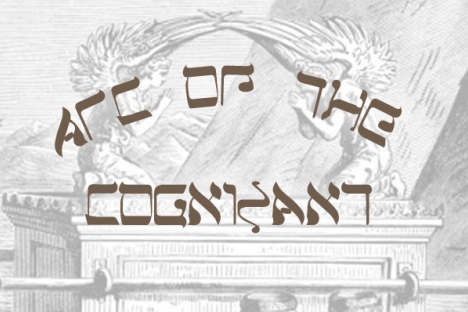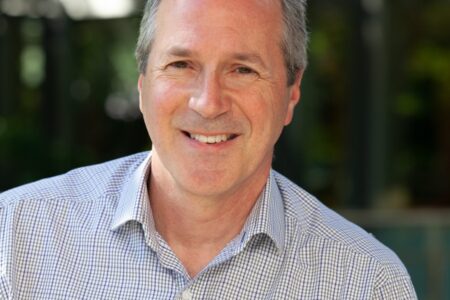COLUMN: The West is Best -- What do we owe the Rest?
A re-visioning of old habits
Today I am trying to explore an old habit of my judgement, with regard to an historical fact I have long attempted to assimilate to a personal sense of justice.
The West has dominated the world for 400 years, and practically ruled it for a century from about 1850 t0 1950. The rest of the world over which the West held sway was subject to the power and decisions of empires in Europe or North America. I do not see our dominion as justice for the non-Western world: it was not justice, but it happened, it is a fact and nothing can change that.
I have allowed this repeated reaction, and constantly followed it with a second judgement: since the West has imposed itself over the rest of the world, it is wrong for Westerners to judge how the rest live, to say how political, cultural, social, and legal order in those lands do not meet norms expected in the West, wrong to say “they need to learn our ways.” Therefore Canadian soldiers have no business among Afghans, for example, enforcing our ideals of a proper order for them. I am happy to enjoy Canadian rights. Afghans might too. It is not at all clear to me that we owe them imposition of order with armed interventions.
My habitual mental attitude — judging historical facts as negative phenomenon — is what I aim to change. Things happened, they were not “fair,” and they are beyond altering now. To carry the burden of my judgement seems now quite pointless. Nor will I judge myself as a bad person just because I am Western.
I certainly have not participated in imposing Western dominion over the non-western world, though I have benefitted from that past. I own no guilt for that.
Resentment, responsibility, blame
I often think myself into the mind of Chinese, or Arab, or African individuals and try to imagine their reaction to the past 400 years. China was far beyond Europe in many ways in the year 1600; go back another 200 years and the lands of Arab Muslims were indisputably more civilized or sophisticated than Europeans. Africa had flourishing societies and cultures before European colonialism made deep and destructive impacts on that continent after about 1750. We enslaved many from there; their fellow Africans sold them into it.
Native or aboriginal peoples in lands colonized by Europe also have emotional freight to bear over their centuries of subjugation to “white settler society.”
Here is an easy way to show one’s progressive political attitude now in any geopolitical discourse: accuse the West of colonialism. Now assume that any Westerner of virtuous sensitivity will hear, agree, and hang their head in guilt.
Yet a feeling of guilt for historical injustice is not appropriate for people who are personally not the cause of that past. What my dad or grandmother did are not acts for which I can be responsible, nor the acts of a state called Canada or an empire ruled from Britain. I am white, I have inherited some historic “unearned entitlements” that come with my ethnicity, gender, and class. But, though I imagine myself to have progressive politics, I refuse to feel responsible.
I can act now in ways that do not perpetuate injustice. I cannot undo history. I hope to elicit some kind of answer to people who expect me to feel guilt.
A fact of the present: who wants to live outside the West? No Westerner.
I cannot, nor can any other observer of the global scene, escape this other fact: the West has the best life for its citizens in terms of human rights, material security, health, and prosperity, and opportunity for career and liberty.
There is no phenomenon of population pressure on the non-western world from Western masses trying to become citizens of Asia, Africa, Russia, or Latin America. The flow of refugees, and economic migrants, and people wanting “a better life” is a noticeably one-way traffic. To the West – not from the West.
History and I
My regular readers know by now that I have been a Marxian socialist and critic of society in my younger days, and have been thoroughly submerged in the materialist science of the Western tradition when I was at university, and in my past energetic political activism.
They may also know that I feel I have been transformed by life experience, by being a father and grandfather, by living in Nelson, by new books and new relationships. The personal changes I feel within have happened over three decades.
The changes interior to my mind and character are evident in the ways that I value spiritual, immaterial, esoteric, or emotive qualities in life more than I used to. I would say my heart is now more in balance with my intellect; dare I say, it feels like… “progress”? Friends of long acquaintance agree with me.
Capitalism, history, and justice
When I was trying to provoke Revolution, to overthrow capitalism and establish social justice by mass political mobilization up to and including violence, I had more anger. I still loathe what capitalism means to me, extended beyond mere economics into its cultural, social, political, and spiritual effects on humans. I am still Marxian enough in my understanding to hold capitalism responsible at the base of the globe’s worst problems: climate change, injustice, war, extinctions, and most obviously, an inequitable sharing of the world’s wealth.
While I will not offer the simple word “socialism” to say all that I need for my vision of a better human world, I still use the word “capitalism” as shorthand for a great deal that I dislike. A better world will be a post-capitalist one.
Many people say they do not like capitalism,that they reject materialist and egotist lifestyles. There are people who say they act against capitalism and yet are enjoying lives privileged by Western capitalism’s history – a history they mostly know nothing about – that their claim to be “alternative” people swimming against the mainstream is to me blatantly false.
Progressivists cannot live outside, pretending resistance to, the mainstream while they prosper manifestly from incomes earned within capitalist careers, on incomes only capitalist social order would ever make available to them.
How did the West ascend to supremacy?
History has made Canada among the world’s richest and freest nations, not because Canadians are spiritually-evolved but because we’re part of the West. It’s a very complex, detailed, imperial history that made northern and western Europe the world’s wealthiest, most-powerful, democratic civilization. Since 1450 AD, empires ruled by European nations enriched their civilization; white-settler colonies shared in the power and the glory of Europe.
Slavery, mass death of native populations, wars of conquest, deliberate under-development, and outright plunder of resources, are part of material history.
If one is born into Western civilization in the middle classes, a “birthright” of affluence derived from generations of history, and the entitlements of good health, education, and opportunity — generated by and rooted in injustices of the past — are yours to inherit.
Naturally, because of my self-identification as an historian, and as one who studies knowledge of historical time very seriously, I am appalled by the ignorance of human history that affluent Westerners demonstrate by their attitude of entitlement. But an attitude of guilt is just as wrong-headed.
I’ve observed that Western people express an expectation that they deserve prosperity and liberty because their minds, Western minds formed in the West and its privileged conditions, have climbed to higherplanes of wisdom. Great health, material wealth, fine education, affluent economies, spiritual choices selected by shopping the world’s history and cultures: these have elevated us.
(The most egregious, the truly awful, expression of this attitude of superiority by personal virtue, is found in a book called The Secret by Rhonda Byrne. She calls her secret “the law of attraction” – and I will say no more about that.)
One constant refrain in the self-presentation of the West, the story we tell ourselves about our superior way of politics and rights, is that our system separates private business from public government, just as we separate Church and State. This is heard repeatedly in Canada now as we find our policy toward China and a Chinese corporation, Huawei, under scrutiny. “Canada is a rule-of-law society and we do not interfere in the processes of the law and the courts, not employing government dictation over judicial procedure.” Such is the sentiment we hear from our Foreign Minister Christia Freeland. In the West, government allows forces of the free market and the independence of the legal process to operate “outside politics.”
Yet we’re also observing our Prime Minister squirm under suspicion his Liberal government has tried to save a corporation, SNC Lavellin, from losing contracts as a result of illegal activities (bribes) in the corrupt Libyan regime. Saving a corporation that employs many thousands of Canadians is a motive, perhaps, for government to pursue a certain course; the American President says good relations with the murderous misogynists who rule Saudi Arabia are needed, so the Saudis keep putting money into the American economy to keep Americans employed. When corporations dislike government actions, they can punish us. They might export corporate jobs to a poorer nation with low wages. (Pacific Insight Electronics, take note.)
One could forgive the observer who concludes that in the West, multi-party free elections produce government that has to serve corporations, whereas in China or Arabia, business must serve unfree, unelected, one-party government. In no place do “the People” truly govern for themselves or exercise real freedom in their choices.
A super-wealthy few rule the masses, in all cases. Government is never rule of, for, and by a sovereign citizenry. I accept the truth of that analysis, but I would still much rather live in the West, capitalist, corporate, and corrupted as it may be.
Technology and Humanity
Here is a basic truth simple to grasp: a human artefact, anything humans can make, has no morality. This is true for all tools, other than weapons whose only purpose is to cause death of living beings; killing is an act of immense moral significance and will forever be contentious in moral reasoning.
Truth the second: the use of a thing made by humans has moral freight. A blade is useful in so many ways, as are cars, chemicals, and combustions, and all might kill if that is the intent of the human who employs them. A sane, humane, moral person can be trusted with dangerous technology, a moral monster cannot.
During WWII, Albert Einstein observed trenchantly that “our technology has outrun our humanity.”
Or, as Alan Ladd told the farmer’s wife, in his 1953 role as the good gunslinger Shane, “A gun is just a tool, Mary, same as an axe or a shovel or any other tool. It’s the man who holds it that makes the difference whether it’s good or bad.”
I am able to accept that the 20th century’s heinous wars alone are not proof that we have actually deteriorated in consciousness. Those horrors, the people who perpetrated terrible crimes against humanity, do not in themselves prove we have degenerated to uniquely-low levels of spiritual consciousness. We had more deadly weapons, but we were not self-evidently more evil in our use of what we invented than humans in ages past. Campaigns of extermination by armies of the Mongols or Crusaders or Romans, reveal comparable precedents for atrocities.
(Horrifying slaughters such as the Cambodian killing fields might be evidence of great evil unleashed upon humanity from without, if one has a mind to believe in such malevolence outside ourselves; Spalding Gray offers that observation in his monologue film, “Swimming to Cambodia.”Evil might not be human in origin;another example of such speculation appears in Doris Lessing’s novel, Shikasta.)
I will maintain that over our history, our species’ mind is not decaying. Still, culture might change for the worse over time, from epoch to epoch, in some places but not others.
We might be no worse than humans who have gone before us, as I believe. But are we better? The thing that captures my attention is this: we Westerners have astounding new technological tools for work and play; I cannot see that they are liberating us for higher, better, nobler, or more enlightened thinking.
Uses Westerners make of our Freedom and Power
It is not material that makes us better. We rise with loving thoughts, more empathy, deeper compassion. We don’t learn that by having better tools.
I commonly learn from people that they are not using their memory for anything as trivial as multiplication times-tables or remembering quotes or significant dates. Why bother to jam up your mind with those facts? A microchip will do it faster, more efficiently, with less error, than your mind can. As long as I have my screens and a keyboard, there is nothing I need to remember since it is in a hard drive somewhere.
OK, I say. You have more room in your mind for really valuable thought. Give me some examples… And I seem to get these kind of responses: Games. Global gossip about celebrities. Online dating. Porn. Pop music. Funny video clips. Movies. Information about new products.
Some people tell me they keep news in their heads, since they can always access it online. “News” about — ? I ask. About the latest politician’s words, disaster somewhere, war. But it is not in their memory when I push. They still need a screen.
The addiction to 24/7 news instantly is not furnishing for the mind. It is not demonstrably informing people in order to better prepare them to be active citizens. On the contrary, the supposed “knowledge” about world affairs is not factual data making citizens participate more effectively.
You see the problem. I challenge every reader to have this conversation with someone they know who loves their techno-tools. Ask your friend what their mind is filling up with, since they use their tools to do the work once done by human memory. No more memorization of facts now, we have a device to do that for us. Now we can turn our liberated minds to better purposes.
Can you find evidence of people made better by technology? More caring, loving, active-for-others?
Tools will as easily use us, as we use them. “When your only tool is a hammer, you want to find nails everywhere.” The hammer drives you, it shapes you. You must use a tool with finely-tuned consciousness of your intention and ethics if you are to assert your control over technology.
Consciousness changed: “historical development” & “cultural evolution”
It is possible to have a serious investigation of the changes in human mind over historical time. It is a cogent argument that culture is where we can locate the evidence of evolution of consciousness within the species homo sapiens.
“Evolution” is one of those words used so often one easily thinks we all mean the same thing when we use it. We do not.
For many people, the word means simply growth that reveals progress. Betterment, improvement, maturing-into-full-grown-greatness: to many people this is the meaning of evolution. It is used as a synonym for positive change.
It is often used as meaning great change that is similar to revolution but contrasted with it, because it avoids violence associated with revolution and is slower in pace. Revolution is an explosion, evolution a journey.
One of the similarities between Marxian materialists and the proponents for evolution-of-mind, thinkers like William Thompson and Dr. Merlin Donald, is that they perceive human history moving through long stages, and that in succeeding epochs there is evidence of development in that mysterious human quality, the “possession of consciousness”.
I would agree human consciousness has changed; I intuit that our spiritual development as revealed in our religions and other cultural phenomena has undergone growth.
For Marx, a student of Hegelian metaphysics, each stage of human history – from primitive communism, through ancient slavery, Asian despotism, feudalism, capitalism, socialism and communism – has a material foundation in production by humans of their necessities of life; in each stage there is a “class consciousness” appropriate to the material basis of society.
The philosophers of consciousness-in-evolution, Jean Gebser or Clare Graves, also posit an unfolding of human mind over long epochs of time.
(If readers are looking for writers on the subject of how consciousness has emerged, whether it is more advanced now than in the past, I recommend these authors, researchers, and thinkers: William I. Thompson; Robert Bellah; Clare Graves; Ken Wilber; Don Beck; Jean Gebser; T. de Chardin; R. Wright; B. Marx Hubbard; Sri Aurobindo; B. Swimme; J. Rifkin; G. Braden.)
I must entertain seriously the hypothesis that our consciousness now is not what it always was historically. I comprehend the fact that our material brain, the organ of matter wherein consciousness emerged and still resides, is the same brain homo sapiens has had since the species emerged a quarter-million years ago. We have not added to the brain, although new technologies now are on the threshold of such additions, or so I am informed by neuroscientific research.
The brain and the mind are not identical. The brain has stayed consistent in its matter, but the mind has altered over the time our species has lived upon this planetary habitat.
Yet I am no neuroscientist, and I can offer no solid definition of consciousness that can satisfy the demands of Western physical sciences’ standards for proof and evidence. Shortly I will outline the research of a cognitive neuroscientist, Dr. Merlin Donald, into cognitive developments he discovered by a study of cultural history. I am an historian, and admit my limitation for scientific writing.
End Part One
In the next edition of the Arc I will pose questions arising from the historical legacy of the West’s global leadership, including how we explain our own successes and advantages to ourselves, and how to observe cultural change in religion and philosophy.


























